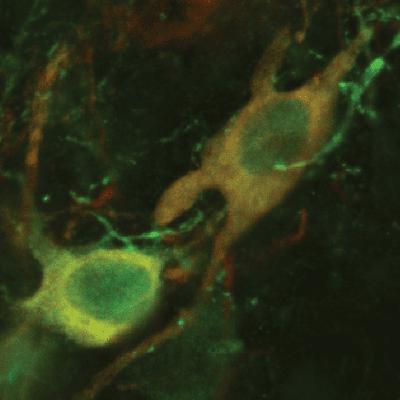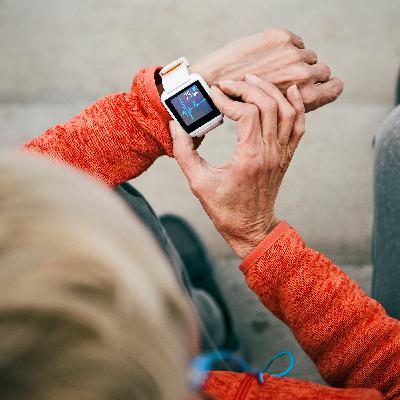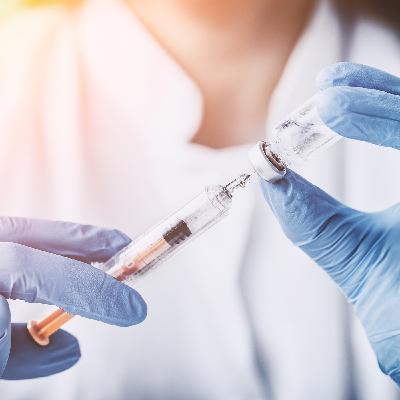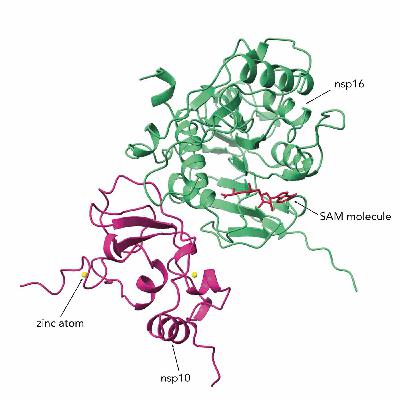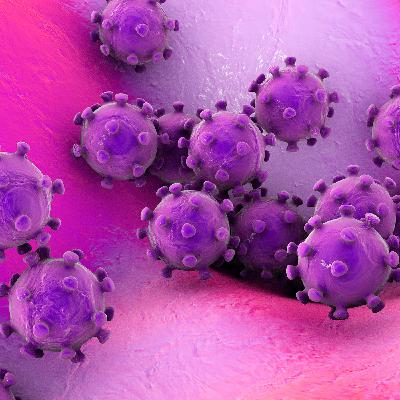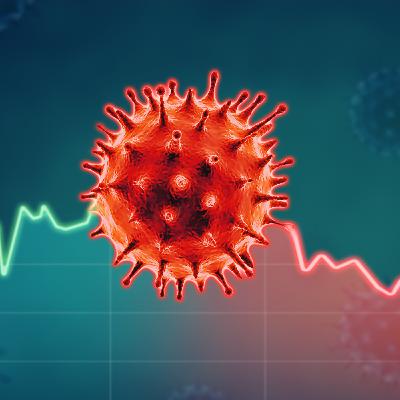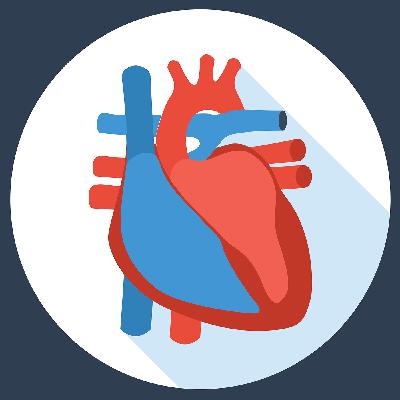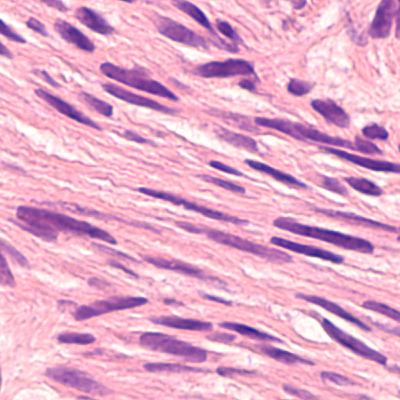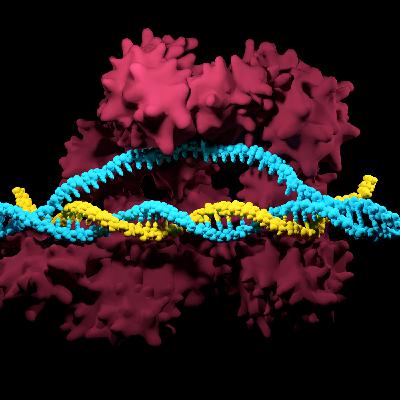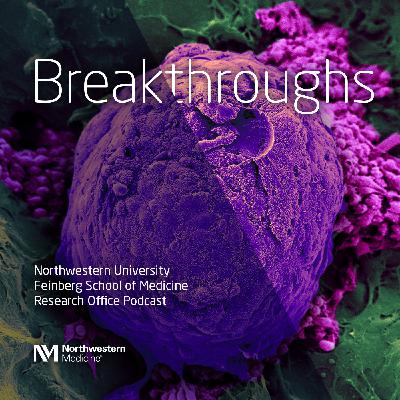Discover Breakthroughs
Breakthroughs

Breakthroughs
Author: Northwestern University Feinberg School of Medicine
Subscribed: 36Played: 349Subscribe
Share
© All rights reserved
Description
Breakthroughs is a podcast about groundbreaking research and the scientists leading these discoveries at Northwestern University Feinberg School of Medicine. We are driven by our mission to transform the practice of medicine and profoundly impact human health beyond the individual patient. We believe better answers only come from discovery.
164 Episodes
Reverse
Northwestern Medicine scientists have discovered one of the earliest signs of Parkinson's disease, proving that damaged neuronal mitochondria alone can cause symptoms of the disease, according to a study published in Nature. Senior author D. James Surmeier, chair of the Feinberg department of Neuroscience, who has over 30 years of experience in the field, explains the importance of these findings for future Parkinson's research and therapeutics.
As heart conditions like arrhythmia become increasingly common, heart monitoring is becoming an even more important tool for disease prevention and treatment. Northwestern Medicine cardiac electrophysiologist Rod Passman, MD, who has over three decades of experience in the field, reviews the history of cardiac monitoring and looks to the future. He details his pioneering use of implantable heart monitors for arrhythmia in stroke patients and his partnership with a consumer electronics company to bring wearable cardiac monitors to patients.
Millions of people are now living with COVID-19 and their long-term outcomes are unknown. Northwestern's Dr. Jeffrey Linder says more research studies on this group are needed to provide better information about COVID-19 care before, during, and beyond the hospital.
A team of Northwestern scientists have come together from across disciplines to develop a COVID-19 antibody test designed for at-home use. Elizabeth McNally, MD, PhD, is part of the team working on this test to determine prior exposure to the virus.
Although COVID-19 doesn't necessarily discriminate, some communities are far more susceptible to the disease. People who are black or African-American are more likely to contract the virus - and to die from it. Clyde Yancy, MD, discusses reasons for these outcomes and the need to fully address health care disparities in America.
Monitoring patients and frontline health care workers for symptoms of COVID-19 could get much easier with a small wireless sensor developed by scientists at Northwestern and the Shirley Ryan AbilityLab. Northwestern’s John A. Rogers explains.
While the world anxiously awaits a vaccine for COVID-19, some physicians on the front lines are trying new or repurposed therapies in an effort to help COVID patients. Dr. Benjamin Singer, a Northwestern physician-scientist, discusses his experiences in the ICU during this time and his recently published letter warning against the use of unproven therapies.
This is an update to the Jan. 28, 2020 episode about Northwestern's Karla Satchell's effort to lead an investigation into the structure biology of the components of COVID-19. The goal is to ultimately understand how to stop it from replicating in human cells through a medication or vaccine.
In mid-March, the early days of Chicago's COVID-19 outbreak, older adults with multiple chronic conditions didn’t think the disease would affect them and reported not changing their behaviors, according to the results of a Northwestern Medicine. Michael Wolf led this study and explains the results.
Judith Moskowitz, PhD, MPH, is a social psychologist and professor of Medical Social Sciences at Feinberg who studies the impact of positive emotion on health-related and other life stress. She discusses her research and things you can do to increase positivity during the COVID-19 pandemic.
As an epidemiologist and infectious disease physician, Chad Achenbach, MD, MPH, has shared his expertise on a variety of global public health crises such as Ebola and Zika outbreaks. In this episode, he sheds light on the global emergence, epidemiology and response to COVID-19.
Abel Kho, MD, is the director of the new Institute for Augmented Intelligence in Medicine at Feinberg (now called the Institute for Artificial Intelligence in Medicine). He discusses his vision for the institute and how AI can enhance healthcare.
An important finding detailed in a new Northwestern Medicine study warns of the role certain kinds of meat may play in increasing cardiovascular disease risk and premature death. Norrina Allen, PhD, led this research and shares details about the study.
Microbiologist Karla Satchell, PhD, is leading a national effort to investigate the structure biology of the components of the new coronavirus virus (2019-nCoV) and ultimately understand how to stop it from replicating in human cells through a medication or vaccine. This work is being done with the Center for Structural Genomics of Infectious Diseases at Northwestern, which is funded by the National Institute for Allergy and Infectious Diseases.
This talk was given at Northwestern Medicine on March 17, 2020 by Dr. Michael Ison. He discusses the virology and epidemiology of COVID-19 as well as predictors of patient outcome and strategies to manage patients with the infection.
Of the thousands of studies published by Northwestern scientists in 2019, some of the most discussed came from the field of cardiology. Two Northwestern physician scientists, Dr. Clyde Yancy and Dr. Donald Lloyd-Jones, review some of these findings and share their thoughts on advances in cardiology to come in 2020.
It is the most common tumor found in women and is the cause of 200,000 hysterectomies in the United States every year. Yet, uterine fibroids have not been a frequent topic of medical research. Northwestern’s Serdar Bulun, MD, leads one of the few research programs focused on the molecular and cellular abnormalities that may cause uterine fibroids and is investigating novel targets to treat the condition.
In recent Northwestern Medicine study, published in the New England Journal of Medicine, women surgical residents reported more mistreatment than men, which was linked to higher burnout rates and more suicidal thoughts.
Dr. Elizabeth McNally is a human geneticist, a Northwestern Medicine cardiologist and the director of the Center for Genetic Medicine at Northwestern. In this episode, she talks about her recent discoveries in the genetics of cardiovascular and neuromuscular disorders and shares what we can expect in the next few years in the field of genetic medicine.
A rare blood disorder related to people missing a protein, called PAI-1, was identified in a small Amish community. Douglas Vaughan, MD, studies the community and found that those without the protein seem to live longer and healthier lives.


